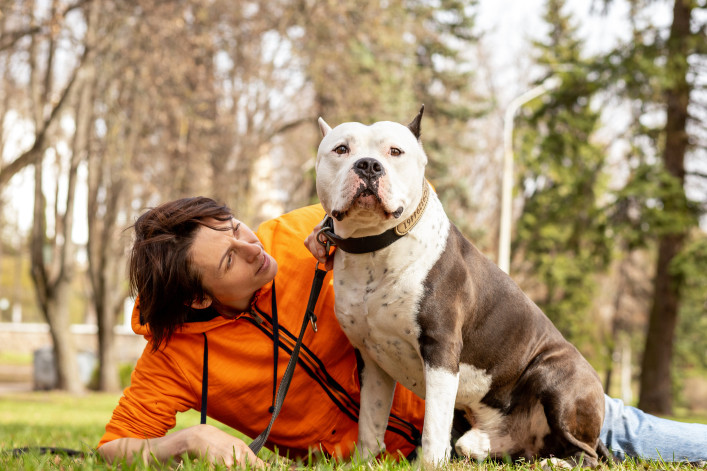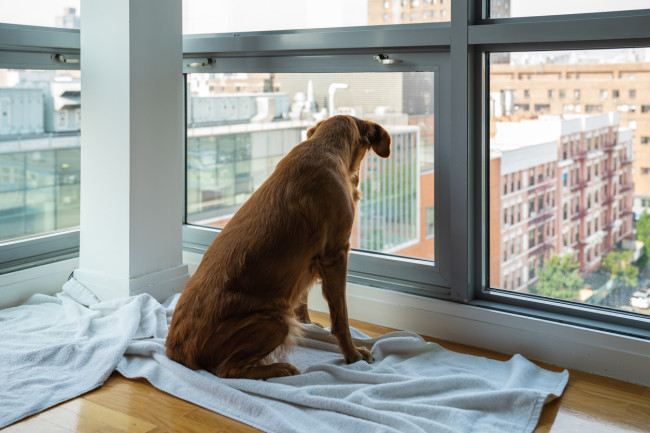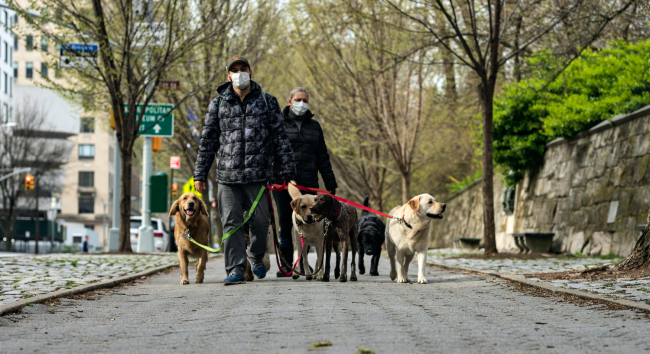3 tips for buying a NYC co-op or condo when you own a pit bull or other large dog breed
- Tell your agent and attorney so they can investigate a building's pet policy and past exceptions
- Have your dog’s vaccination and training records handy and bring them to a board interview

Reference letters for your board application should include nice things about your dog as well.
iStock
A dog may be a man’s best friend, but it might not feel that way during your apartment search if your pet is a pit bull.
New York City co-ops, and to a lesser extent condos, can have restrictions on pets. Even some pet-friendly buildings may still ban dogs over a certain weight, such as 20 or 40 pounds, or outlaw so-called “aggressive” breeds such as Rottweilers and pit bulls.
These restrictions can make hunting for an apartment more complicated, though co-op boards are becoming more open to dogs of all stripes in an effort to stay competitive with other buildings for buyers, said Michael Popovsky, an agent at The Agency.
Still, no matter how sweet your dog is, it’s important to keep these restrictions in mind during your apartment search. Read on for three steps you should take when apartment hunting with a pit bull or other large dog breed.
Tell your agent and attorney right away
It’s not just about finding a pet-friendly building. Your agent and attorney need to know that you have a pit bull, so they can investigate potential buildings’ pet policies to make sure they're friendly to your dog, not just tiny breeds.
“The attorney can pull the house rules, ask the management company or co-op directly what their dog policies are, as well as to see if they allow an exception to these rules,” Jeffrey Baron, a senior associate at the law firm Weidenbaum & Harari, said. “And then they want to make sure it's listed on the contract as well.”
Your agent will start by looking at the building’s bylaws and house rules, but a good agent should also ask the listing broker about the building’s pet policy, and reach out to the managing agent and neighbors for information as well.
They may even stake out the building to see what dogs are filtering in and out, Popovsky said.
“A lot of this is grassroots research to try and take the temperament of the board,” Popovsky said. He also suggests watching to see how many dogs are coming and going from the building.
That's a tactic adopted by Laura Cook, an agent at Keller Williams NYC. She recalled seeing an owner with a pit bull coming out of a building she was looking at for a client in 2019. She later found out from the listing agent that one of the board members at this building had a pit bull as well, but that didn’t mean her work stopped there.
Be ready for a reference, or an interview
Cook made sure that her client's reference letters were tailored to include a few nice things about their dog. (And yes, her client did get the apartment).
“When we put the application forward, we made sure that there were really nice things said about the dog as well in the reference letters,” Cook said. “We really didn't have any issue once we put the application forward, related to the dog at all.”
Cook owns her own condo in Hamilton Heights, Manhattan with her pet Bailee, so she’s intimately familiar with living with a dog in NYC, albeit a medium-sized pup.

Both Cook and Popovsky said that sometimes a board may want to meet your dog during the board interview. While this hasn’t happened in Popovsky’s personal experience, it’s worth being prepared for just in case.
“My understanding is that [the dog] is involved in the board interview so the board can get a feel for what the temperament is—whether the dog is reactive to new people, whether it barks a lot,” Popovsky said.
Have your paperwork ready
You’ll also want to have your pet’s records on hand, especially for a pit bull.
A co-op board may want to see documents outlining your dog’s vaccination history and training so they can establish whether it has a history of aggression, Baron said. If the building you hope to buy in has weight limits on dogs, you’ll need to know that as well.
“You should be able to state without a question that this dog has no history of violence or biting issues or aggressiveness towards other dogs,” Baron said.
You certainly don’t want your pet to act out in front of the board. Talk about a faux-paw!



























